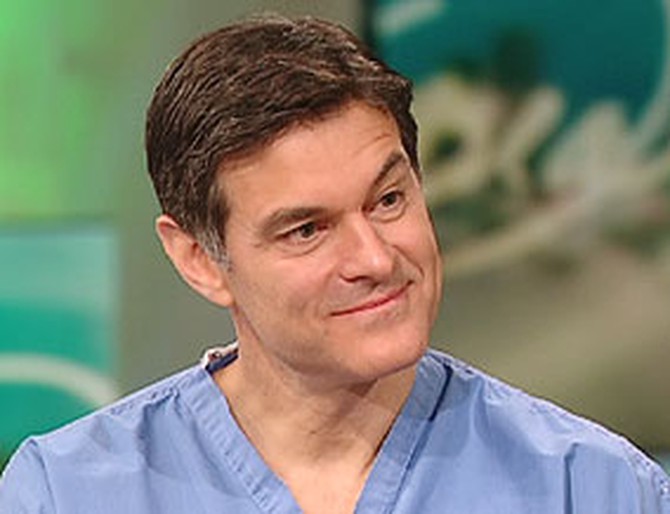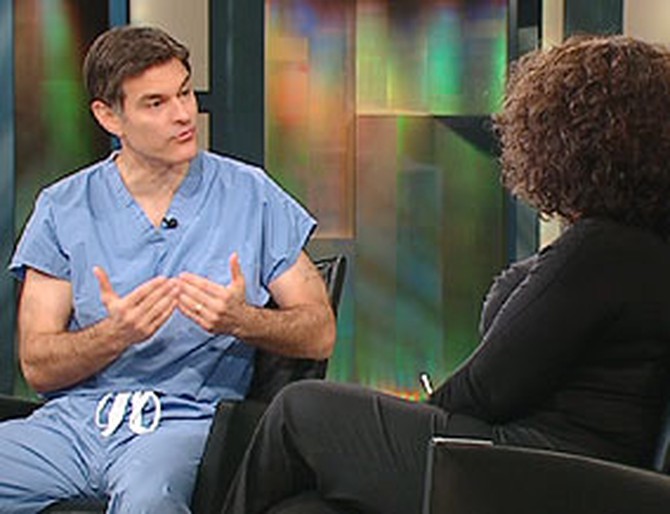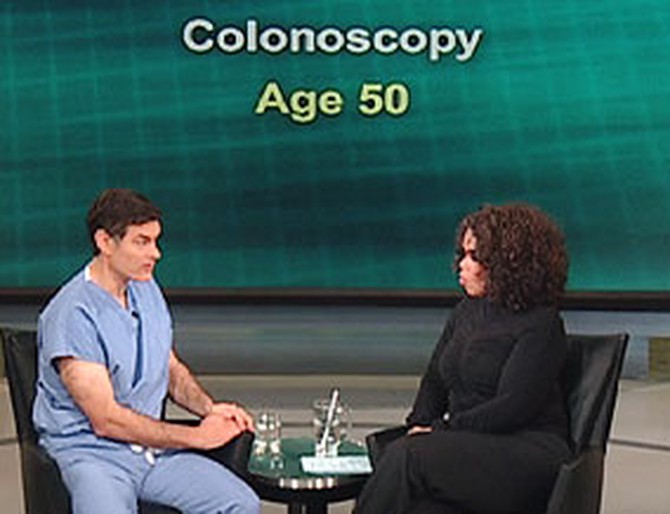Life-Saving Tests
By Dr. Mehmet Oz

Dr. Oz, co-author of YOU: The Owner's Manual and YOU: The Smart Patient , is a world-renowned cardiac surgeon. He's here with a big wake-up call for America.
"How do you make American medicine better?" Dr. Oz asks. "You do it by making patients smarter. The first thing you have to figure out is what [medical testing] is critical to you. "
One test that's important to both men and women is testing your blood pressure. High blood pressure—also known as hypertension—damages arteries and causes heart disease. Dr. Oz says optimal blood pressure is 115 over 75.
"How do you make American medicine better?" Dr. Oz asks. "You do it by making patients smarter. The first thing you have to figure out is what [medical testing] is critical to you. "
One test that's important to both men and women is testing your blood pressure. High blood pressure—also known as hypertension—damages arteries and causes heart disease. Dr. Oz says optimal blood pressure is 115 over 75.

High cholesterol is a major risk factor of heart disease and, according to the FDA, the number one killer of men and women in America. There are two types of cholesterol: HDL and LDL. You want your HDL number to be high and your LDL number to be low.
The test: Cholesterol testing
When you should be tested: Once at age 20 to establish a baseline, then every five years after age 35
Why you should be tested: To prevent hardening of the arteries
Dr. Oz says an easy way to remember the difference between the two types of cholesterol is by thinking of HDL as "healthy cholesterol" and LDL as "lousy cholesterol."
The test: Cholesterol testing
When you should be tested: Once at age 20 to establish a baseline, then every five years after age 35
Why you should be tested: To prevent hardening of the arteries
Dr. Oz says an easy way to remember the difference between the two types of cholesterol is by thinking of HDL as "healthy cholesterol" and LDL as "lousy cholesterol."

High cholesterol is a major risk factor of heart disease and, according to the FDA, the number one killer of men and women in America. There are two types of cholesterol: HDL and LDL. You want your HDL number to be high and your LDL number to be low.
The test: Cholesterol testing
When you should be tested: Once at age 20 to establish a baseline, then every five years after age 35
Why you should be tested: To prevent hardening of the arteries
Dr. Oz says an easy way to remember the difference between the two types of cholesterol is by thinking of HDL as "healthy cholesterol" and LDL as "lousy cholesterol."
The test: Cholesterol testing
When you should be tested: Once at age 20 to establish a baseline, then every five years after age 35
Why you should be tested: To prevent hardening of the arteries
Dr. Oz says an easy way to remember the difference between the two types of cholesterol is by thinking of HDL as "healthy cholesterol" and LDL as "lousy cholesterol."

It's the life-saving test every 50-year-old should have! One viewer, 57-year-old Diane, was long overdue for a colonoscopy, which can detect cancerous polyps. She recently decided to face her fears. "It wasn't painful," she reports. "[My doctor] made me very comfortable."
The test: Colonoscopy
When you should be tested: Starting at age 50
Why you should be tested: To prevent diverticulitis and colon cancer
Good news—Diane does not have any signs of cancer! The test did, however, reveal the existence of small pouches in her colon, or diverticula, a symptom of an unhealthy condition that can be improved by eating a diet high in fiber.
What to tell your doctor—and what exams to ask for—at every age! Be a smart patient!
The test: Colonoscopy
When you should be tested: Starting at age 50
Why you should be tested: To prevent diverticulitis and colon cancer
Good news—Diane does not have any signs of cancer! The test did, however, reveal the existence of small pouches in her colon, or diverticula, a symptom of an unhealthy condition that can be improved by eating a diet high in fiber.
What to tell your doctor—and what exams to ask for—at every age! Be a smart patient!
Published 01/01/2006

